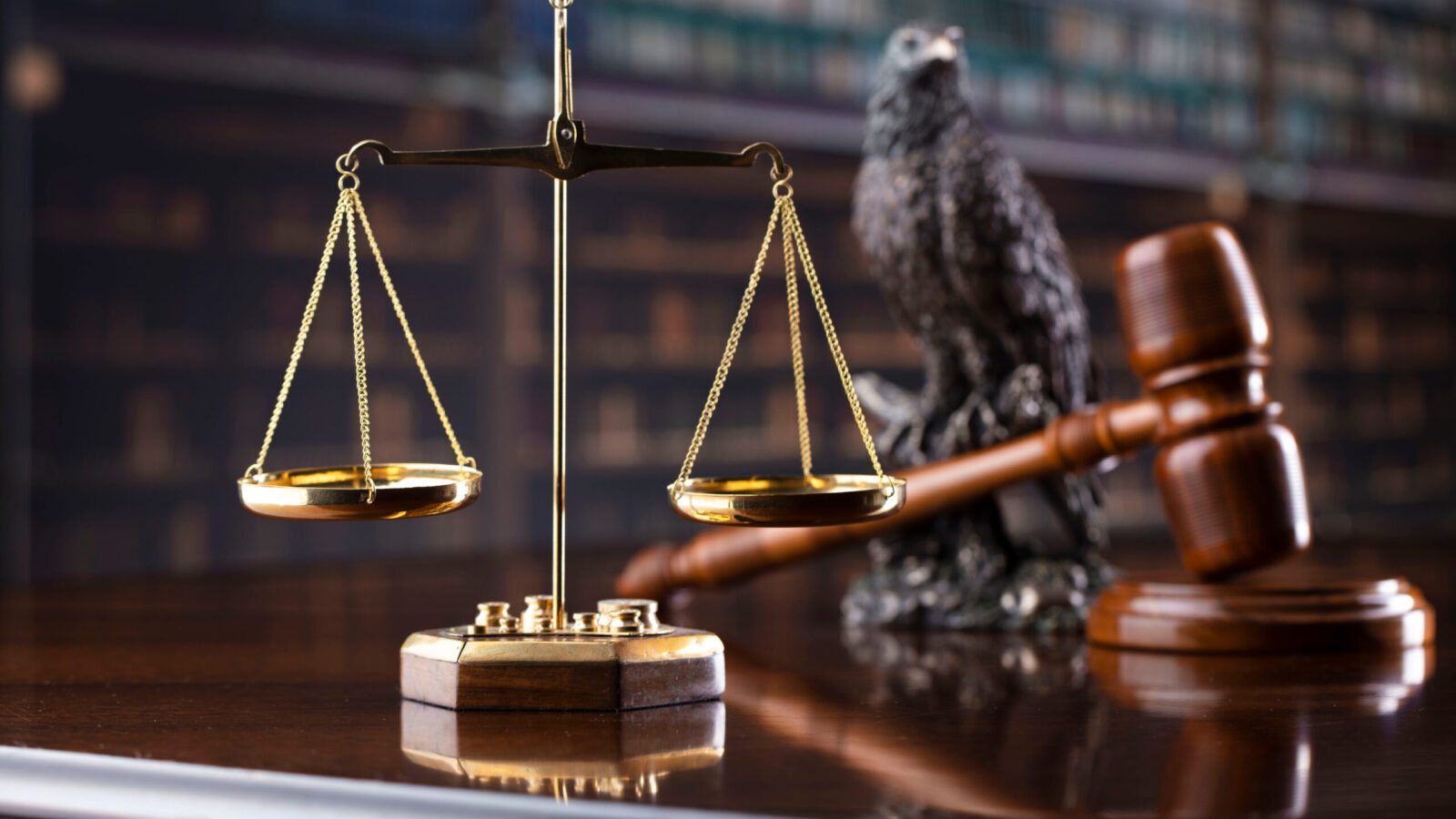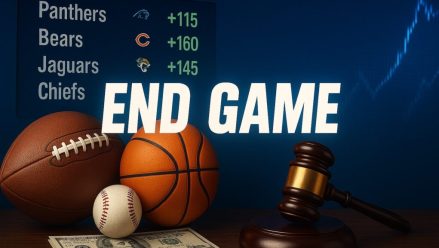A lawsuit filed in Washington, D.C. in late February could bring into question how “loss recovery acts,” one of which was the basis years ago for the state of Kentucky suing and winning a $300 million claim against PokerStars, are structured and interpreted.
A group called DC Gambling Recovery filed a complaint in a District of Columbia Superior Court on Feb. 28. The complaint was moved to the U.S. District Court for the District of Columbia April 4.
On April 10, the court approved a motion by the defendants to extend the response date to the complaint to May 5. But should the operators seek a dismissal, Judge Carl J. Nichols ordered a response from D.C. Gambling Recovery by June 17 and a reply from the defendants by July 7.
Two lawyers say that the case won’t go far, but that it could force the District of Columbia, and potentially other jurisdictions, to rethink “loss recovery acts.” The D.C. law and others around the country do allow for bettors to recoup losses, though many specify that consumers can only get back losses from illegal gambling.
In D.C., retail and digital sports betting were legalized in January 2019. After several iterations, BetMGM, Caesars Sportsbook, DraftKings, Fanatics Sportsbook, and FanDuel all currently offer legal digital betting. All five are named in the lawsuit.
Referred to as the Statute of Anne in the lawsuit, current law reads:
A person who, at any time or sitting, by playing at cards, dice or any other game, or by betting on the sides or hands of persons who play, loses to a person so playing or betting, a sum of money, or other valuable thing, amounting to $25 or more, and pays or delivers the money or thing, or any part thereof, may, within three months after the payment or delivery, sue for and recover the money, goods or other valuable thing, so lost and paid or delivered, or any part thereof, or the full value thereof, by a civil action, from the winner thereof, with costs. If the person who loses the money or other thing, does not, within three months actually and bona fide, and without collusion, sue, and with effect prosecute, therefor, any person may sue for, and recover treble the value of the money, goods, chattels, and other things, with costs of suit, by a civil action against the winner, one-half to the use of the plaintiff, the remainder to the use of the District of Columbia.
“Most of the Anne statutes say that they specify that when someone is engaged in illegal gambling [they can sue], and the D.C. statute does not say ‘illegal,'” iDevelopment and Economic Association founder Jeff Ifrah told InGame.
But it was a Statute of Anne-based law that came into play in Kentucky when the state sued PokerStars for losses. In that case, the state sued on behalf of itself and asked for treble — three times — the amount of damages. The Kentucky Supreme Court in 2020 upheld a lower-court ruling awarding the state $300 million. Flutter Entertainment, now the owner of PokerStars, is paying the penalty.
The word “illegal” does not appear in the Kentucky loss recovery act. Kentucky’s law also sets the threshold to sue at losing $5 within 24 hours.
Problem gambling advocates behind lawsuit?
While it is unclear who is behind “DC Gambling Recovery,” the group at least appears to be representing the problem and responsible gambling sector. The company was incorporated in Delaware Feb. 17, about 10 days before the original lawsuit was filed.
Several sources in the problem and responsible gambling world say they are unaware of any such group. But the complaint opens with the phrase, “On the eve of Problem Gambling Awareness Month,” and the plaintiffs go on to say that “individuals naturally predisposed to compulsive gambling suffer worst of all” and that “the recent uptick in sports gambling has had dire health consequences.”
InGame reached out to Derek Ho of Kellogg, Hansen, Todd, Figel & Frederick, on behalf of the plaintiffs, but did not get a response.
Ifrah says the case has “no leg to stand on. Whatever the case is, I don’t think that anyone is going to seriously entertain it, but who knows? I think that a judge would have to acknowledge that statute has a serious flaw.”
Several sources suggested the case could be a simple money grab. After all, loss recovery acts allow anyone to try to recoup gambling losses, and it is when a third party makes the attempt that big money comes into play.
In the Kentucky case, according documents filed with the Kentucky Supreme Court, consumer losses totaled $290 million, but the state supreme court “supersized” the damages and called for Flutter to pay $870 million, plus interest. That would have brought the total to $1.3 billion. That number was later reduced to $300 million.
“These people come in and think there is a lot of money there and they want access to it,” Ifrah said.
Michigan loss recovery case rejected
Constitutional law professor Bob Jarvis of NOVA Southeastern cited the Michigan Parise v Detroit Entertainment LLC case as an example of one “rejected” by a state court. In the case, Italo Parise sued Motor City Casino in a Michigan court of appeals to recover $600,000 in losses. But the court denied the claim, essentially saying that legal gambling is exempted from the loss recovery act.
The history of the loss recovery acts themselves is interesting. They originated in England in the 18th century. Many laws from previous centuries remain on the books throughout the U.S. Consider that President Donald Trump reached back to the same century and invoked the 1798 Alien Enemies Act to speed up mass deportations.
In the case of the Statute of Anne, when the British colonized America, they brought with them their own set of laws. The statutes became state laws in many cases. They are more likely to be found in states that originated as colonies — the District of Columbia was carved out of Maryland Colony, one of the original 13. Of the 31 states and D.C. that have such laws, only 10 allow for third parties to sue, and in seven of those, escalated damages can be asked for. In South Carolina, plaintiffs can ask for four times the original loss amount.
Maryland’s law has a carve-out exempting legal gambling. Neither the laws in D.C. nor Kentucky have such language, leaving the courts to interpret the intent of the laws.
How much money is at stake?
Because DC Gambling Recovery is suing five operators, all of whom launched digital betting in D.C. less than a year ago, the amount in question would not match the Kentucky PokerStars number. And in this case, it would not be a single operator who would be ordered to pay.
BetMGM, Caesars, and FanDuel all have or had retail betting operations, as well. But as revenue reports across the country have borne out, the big money is in digital betting. Nationally, digital betting handle is about 10 times more than retail handle.
FanDuel launched its citywide platform last April, and the other four operators launched in July 2024 or later.
Between April 2024 and February 2025, bettors laid down a combined $551 million in wagers. The five operators reported $65.8 million in revenue and paid the District nearly $19 million in taxes. In Kentucky, PokerStars was on the hook initially for $270 million in consumer “losses.” That number was, at one point, trebled, before the $300 million judgment was settled on.
D.C.’s five mobile operators took in considerably less in 11 months, and if they are found guilty, each would presumably pay a percentage of the settlement based on their revenue vs. one company paying all damages. If the revenue number is considered to be the amount bettors “lost” in this case, tripling it would bring the penalty to $197.4 million.
Whatever the numbers, Jarvis echoes Ifrah when it comes to whether or not the case will move forward.
“This case will take them no time to dismiss (it’s that much of a slam dunk),” Jarvis told InGame via email. “The one thing that the plaintiff, DC Gambling Recovery, does get right is that all SOAs trace their roots back to, and are modeled after, the 1710 Statute of Anne (hence the abbreviation SOA), which was enacted to protect British aristocrats from losing their fortunes at the gambling tables.”






